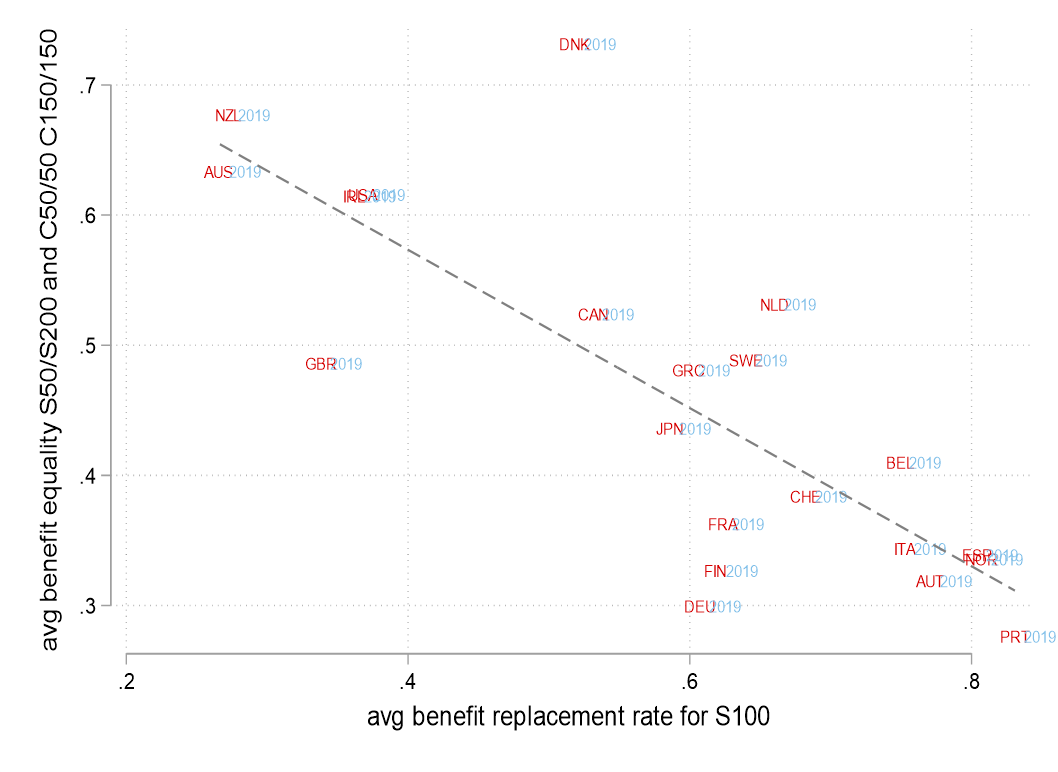
This week, Lyle Scruggs (University of Connecticut) is visiting CRC 1342 – unfortunately only remotely via video conference – for discussing methodological questions of great importance for the CRC’s own research: How to measure the generosity of welfare state programmes to facilitate a meaningful international comparison?
On Wednesday Scruggs gave a talk on “Benefit inequality in social benefit rights”, discussing traditional approaches to grasp benefit generosity (e.g. measuring social programme spending per capita or relative to GDP; replacement rates for a “typical earner”) and their shortcomings: Such broad perspectives do neglect the stratification of many benefit programmes that do privilege certain groups or are taking the average wage-earner as the point of reference. For example: The average replacement rate of a benefit programme far from ideal as an indicator to assess the programmes generosity, because the significance of the paid benefit would be different, depending on the household type: A replacement rate of an unemployment insurance of, say: 60% may be fairly comfortable for a one-person household - but poses a difficult challenge for a four-person household with a single earner, let alone single parents.
It will probably never be possible to perfectly map the generosity of social protection programmes using a handful of indicators. However, Lyle Scruggs' work at least tries to move closer to this ideal: his Comparative Welfare Entitlements Project (CWEP) collects wage replacement rates of social insurance programmes in 33 countries and relates them to ten household types (differentiated by the number of persons, earners and children per household as well as by income classes). By comparing the different household types, Scruggs establishes a measure of the inequality of social insurance programmes.
During his presentation at CRC 1342, for a sample of western industrialised countries, Scruggs combined the measure of inequality of their social insurance schemes with their wage replacement rate for the average worker: There is an obvious trade-off between intra-societal equality of benefits and the general generosity of programmes.

The social security systems of liberal welfare states, such as Australia and New Zealand, have a high level of equality with low wage replacement rates. Most other countries have much higher wage replacement rates, but the benefits are very unequal due to the high dependence of the benefit level on wages. Denmark is an exception here with relatively high equality at relatively high wage replacement rates. Looking at the development over the past nearly 30 years, the UK stands out: social security benefits have become more unequal and have been cut at the same time.
In a workshop on Thursday, Lyle Scruggs will be working with some of the CRC 1342 projects: Together they will discuss how those projects may define, measure and code the generosity and coverage of social protection programmes in their field of research.













